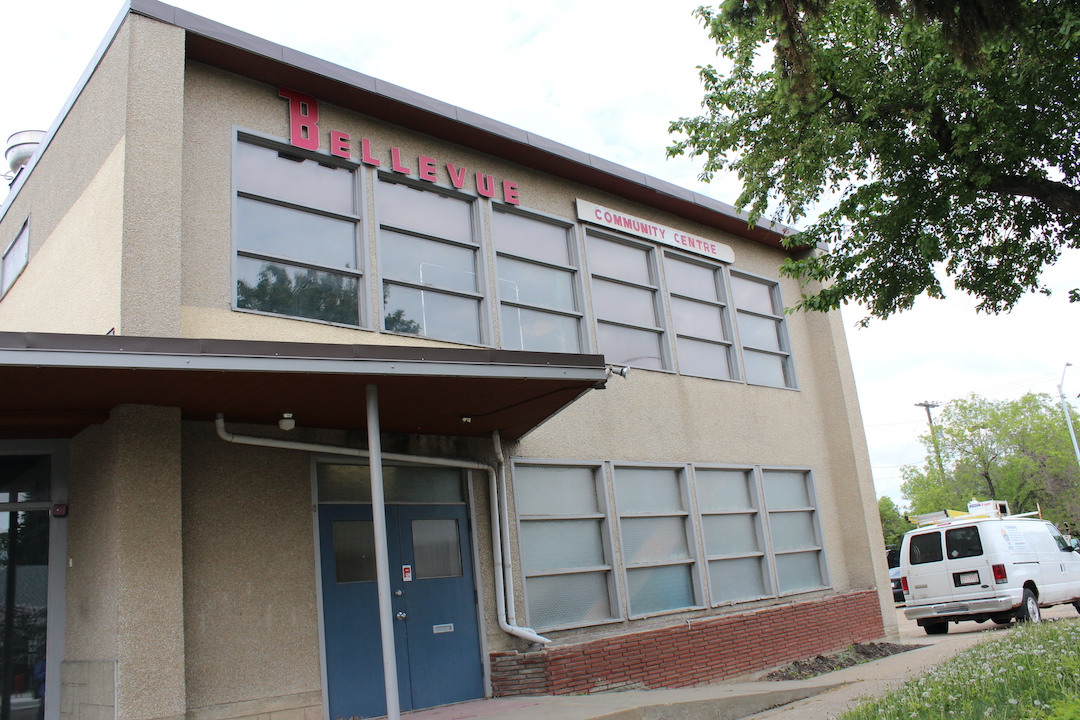The Bellevue Community League is surmounting insurance challenges to open a toy library, but many other leagues across the city are struggling with insurance costs that have spiked by as much as 25%.
"Getting insurance approved took several months, but we have received the go-ahead," Bellevue Community League president Fraser Hayes told Taproot in an email about the toy library. "Apparently, because community members will be taking these items off-site, this fell outside of our normal 'program' insurance coverage."
The library will be a collection of toys that can be booked out for kids up to 12 years old. Hayes doesn't know when it will open. His colleague, treasurer Brian Finley, told Taproot that the league's most recent annual insurance bill was $10,600.
The Edmonton Federation of Community Leagues uses broker NFP to help leagues secure appropriate coverage at competitive rates, though last fall premiums rose by between 15% and 25%. The city requires leagues to have no less than $5 million in liability coverage.
"Our broker that we work with knows the world of leagues very, very well," Laura Cunningham-Shpeley, executive director of the EFCL, told Taproot. "Their role is really to advocate to the insurance company to make sure that these great things can still happen."
Still, insurance is why the Riverdale Community League had to cease its popular snow angels program, as it was unable to insure liability for off-site services. Treasurer Kevin Minaker said the city and EFCL instructed the league to end the program, which once saw neighbours shovel each other's sidewalks as an official program. The problem was that the angels or league could be sued if someone got injured on an improperly cleared sidewalk.
"I believe we still do some voluntary shovelling — it's just not an organized program of the league, so we can't be held liable for any accidents," Minaker told Taproot in an email.
Cunningham-Shpeley said another insurance issue facing Edmonton's 163 community leagues is skyrocketing deductibles. These grew from $1,000 to $25,000 last fall due to a rash of property damage at league facilities.
She added that EFCL does what it can to alleviate the insurance burden for leagues. Beyond organizing a brokerage service, the organization lobbied the city to approve a hold on $250,000 of the EFCL's funds to cover the new deductibles. Should leagues need to file a claim, they can apply for EFCL to cover the deductible.
"We knew this would have big impacts on leagues if they were going to have to pay a $25,000 deductible," Cunningham-Shpeley said. "It just shows you that insurance companies and the state that they are in. No insurance company wants to lose money. Nobody wants to lose money."

Bellevue Community League is opening a toy library at a date to be confirmed after overcoming insurance issues. The scope of coverage is just one of several insurance hurdles facing the city's leagues. (Supplied/Edmonton Federation of Community Leagues)
Minaker said a break-in at Riverdale's hall last spring resulted in a $10,000 claim and a requirement to install an alarm system and protective window film.
"Our insurance has gone from $4,000 per year (pre COVID) to almost $10,000 this year," he said. "We basically have no coverage for small things like minor flood damage or break-ins."
Cunningham-Shpeley said EFCL has an infrastructure assessment program overseen by Avison Young that helps leagues prioritize where to spend funds for improvements meant to last up to 20 years. Part of the hope is to avoid damage before it happens. EFCL expects to conduct 70 assessments this year in addition to the 30 conducted last summer.
"This is about us going into all the (league) halls and then looking at all the amenities," she said. "These are public facilities, using public money to make some decisions about a building, and sometimes leagues can really struggle with where to prioritize those funds."
Coun. Andrew Knack, a vocal proponent of the community league system, said he thinks higher insurance rates are not the best use of league funds. "Community leagues already have tight budgets and this makes it even harder to focus on providing services and hosting events for residents in the community," he told Taproot in an email.
Knack hopes the provincial government will do its share to keep costs under control. "Along with looking at the idea of extending in-house insurance, I would also want to ensure the provincial government is aware of these rising insurance costs as part of their ongoing work to address affordability."
Hayes of Bellevue said his league is in good financial shape, in part because the number of people coming to the hall for programming has not returned to pre-pandemic levels, mitigating the extra insurance costs. That said, he's excited for renovations to his hall's upstairs lounge and a new concert series that launched on March 22.
